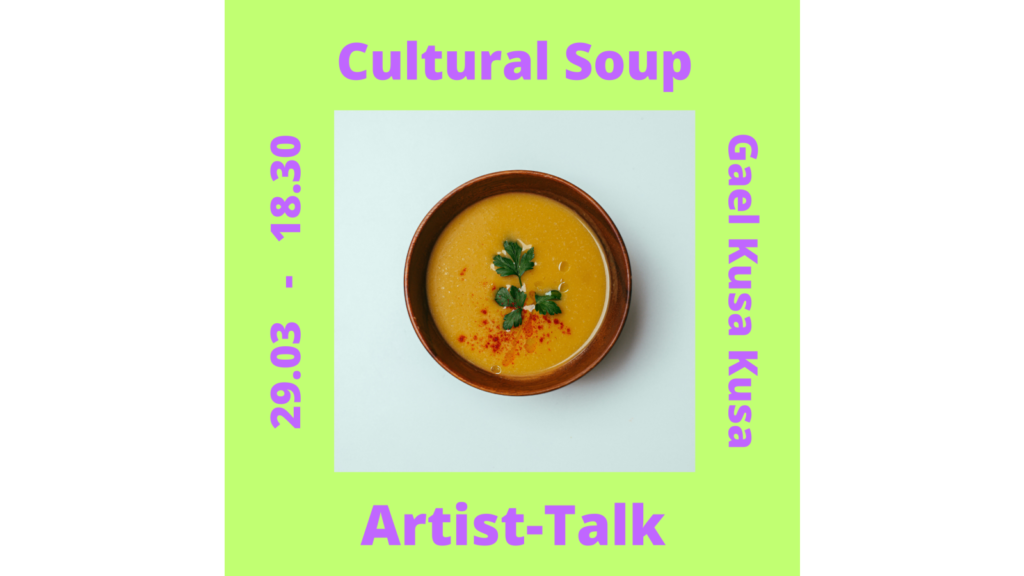
Cultural Soup + Artist-Talk by Gael Kusa Kusa
Article categories: Museums & Folklore Seminarier, föreläsningar och möten
Come have a free bowl of soup and listen to the artist-talk by Platforms latest artist-in-residence Gael Kusa Kusa
Welcome to enjoy a hot soup and meet the new artist Gael Kusa Kusa who is now in residence at Platform.
Cultural Soup is an event where the art association Platform offers free soup to visitors in connection with the arrival of a new artist at Platform’s residence. The event is open to everyone who wants to meet the new artist, listen to an artist talk or just enjoy a good soup.
18.30 The soup is served
19.00 Artist-Talk
“After studying at the Academy of Fine Arts in Kinshasa, GAEL MASKI graduated from the higher education program in painting in 2013. He draws the language of his artistic universe from his personal history. Being a survivor of the war that hit the Democratic Republic of Congo in 1997, where he lost his father, a soldier who died at the front. He arrived in the country’s capital where he tried to find his orientation, how to grow in a post-war society. Early on, he became interested in art as a way for him to reconnect his history to the history of society and thus rebuild a peaceful universe.
His work begins in the community, the projects he undertakes are projects undertaken with communities, neighborhoods and families. Everything starts with contact with people.
In particular, Maski has worked a lot with “the most vulnerable” who live in slums or in difficult conditions, but who, thanks to their mental strength, manage to survive in uncertain realities. It is stories and personal memories that give meaning to his work. In his work, he questions the hierarchy of social memory.
Using the camera as a means of collecting data in a fragmented way and through collage, he creates both realistic and surreal worlds that ultimately emerge as a dream universe that serves as a moral remedy for every viewer who needs to fill an inner void and make a new start. This is why the word ‘poor’ or ‘refugee’ is used in his work as a metaphor that denotes anyone in search of inner well-being.”
